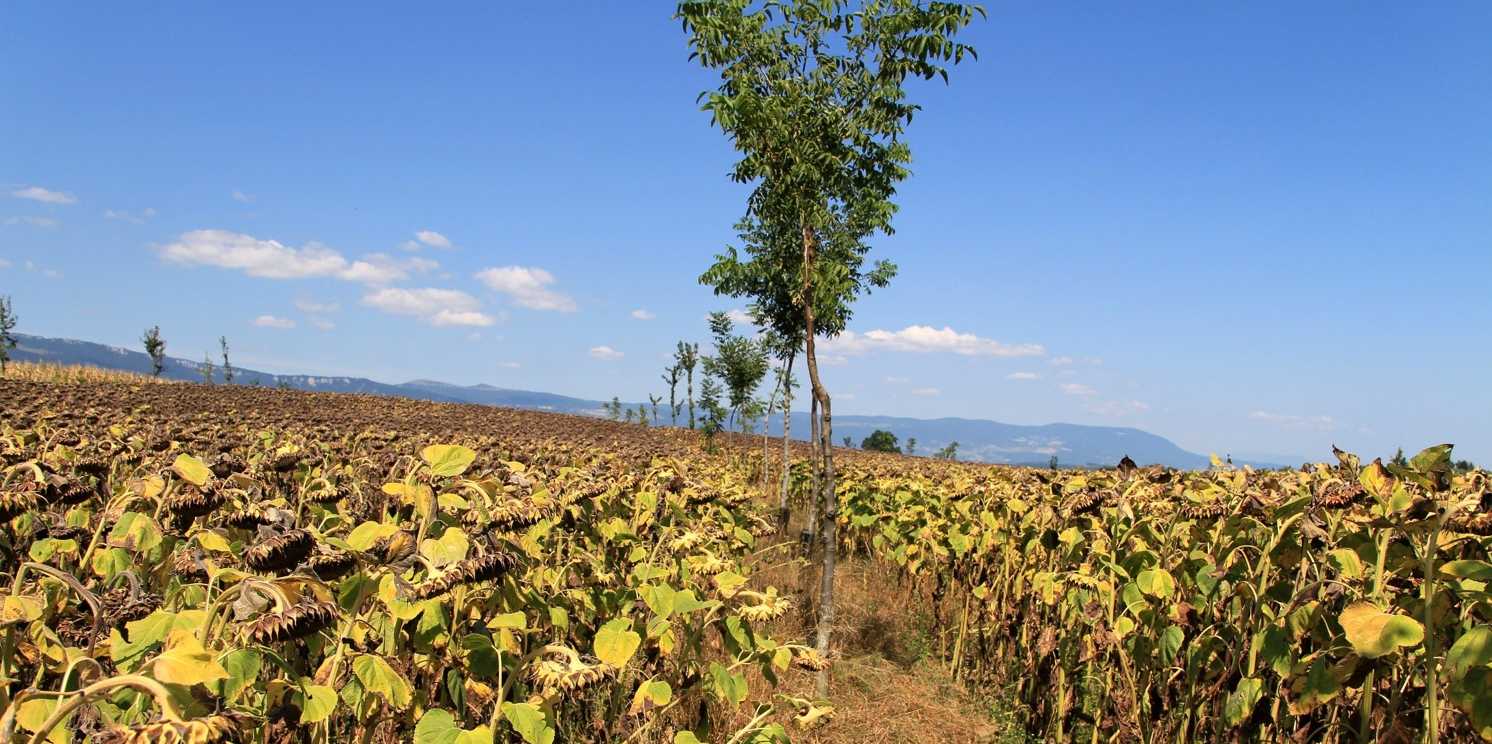Agroforestry in Swiss Farm Systems

Background
Swiss agriculture is currently facing multiple challenges, with pressure from climate change, agricultural policy and civil society requiring important changes in order to be less dependent on chemical inputs and provide more ecosystem services (protection from erosion, habitat for biodiversity, climate change mitigation, …), all the while remaining economically viable.
Agroforestry, defined as the simultaneous association of trees and crops or pasture in the same field, may thus provide part of the solution by notably better stabilizing the local climate, maintaining soils, providing shelter for biodiversity, and mitigating climate change by storing more carbon in soils and trees.
A project was put in place in four different French-speaking Cantons (GE, NE, VD, JU) to test the potential of agroforestry in a Swiss context among 140 partner farmers, and its benefits to a more sustainable agriculture. Extension services and scientists have worked together to develop a pilot agricultural policy linked to specific environmental and economic objectives, with federal and cantonal funding. More info on the project is available external pageherecall_made. Farmers are free to join and try different agroforestry systems within their farms for 6 years while the scientific monitoring is due to last 8 years.
Objectives
As part of the scientific monitoring of the project, ETHZ is engaged to conduct a monitoring of the existing and new-coming agroforestry farm systems in terms of economic viability, erosion mitigation and carbon storage potential. These results will then be discussed with existing data on tree development and biodiversity benefits studied by Agroscope (Agricultural Landscape and Biodiversity group) and extrapolated in time with the use of existing bio-economic models (SAFE models). The particularity of this research is the aim to reach a farming system understanding of the impact of agroforestry on climate mitigation and economic viability, based on on-farm data from various farms in the Canton. A focus will be given on alley-cropping systems with open field crops.
Other scientific partners will conduct monitoring on biodiversity (Agroscope), zootechnical performance (FiBL), and socio-anthropologic aspects (University of Neuchâtel).
From ETHZ, the objectives are thus to
- Develop and try a new methodology to assess the economic influence of agroforestry at the farming system level,
- Estimate the potential of alley-cropping agroforestry to capture carbon and mitigate climate change in a Swiss context,
- Estimate the economic influence of agroforestry within existing Swiss farming systems, and potential trade-offs and synergies happening at this scale,
- Provide extension services and farmers with data and tools to better assess the potential influence of agroforestry on various farming systems.
Outcomes
The work from the ETHZ in the project is expected to provide both methodological advancements and contextualized results, for scientific purposes as well as for more practical use by farmers and extension services.
Country: Switzerland
System: Farming systems, Swiss food system, cropping systems
Project duration: 8 years (2020-2028)
Project partners: about 140 farmers, Agridea, agricultural administrative and extension services of the Cantons of Vaud, Neuchâtel, Geneva and Bernese Jura, Agroscope, FiBL, University of Neuchâtel, Bio-Suisse, BLW
Project funding: BLW (80%), Cantons of Vaud, Geneva, Neuchâtel, Jura and Bernese Jura Bio-Suisse, IP-Suisse, Fondation Sur-la-Croix

For further information please contact Ulysse Le Goff () or Johan Six (), or visit the project external pagewebsitecall_made.
